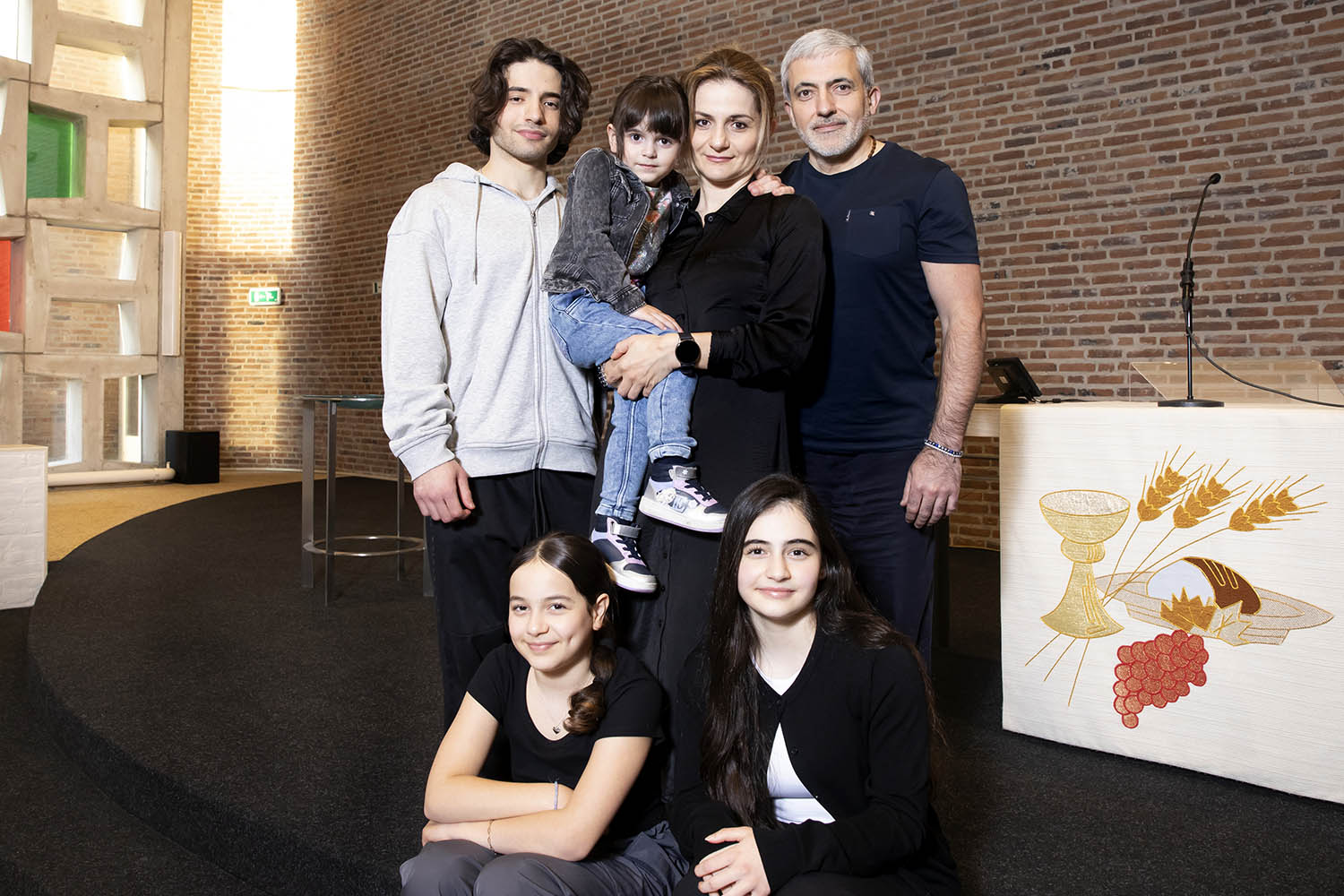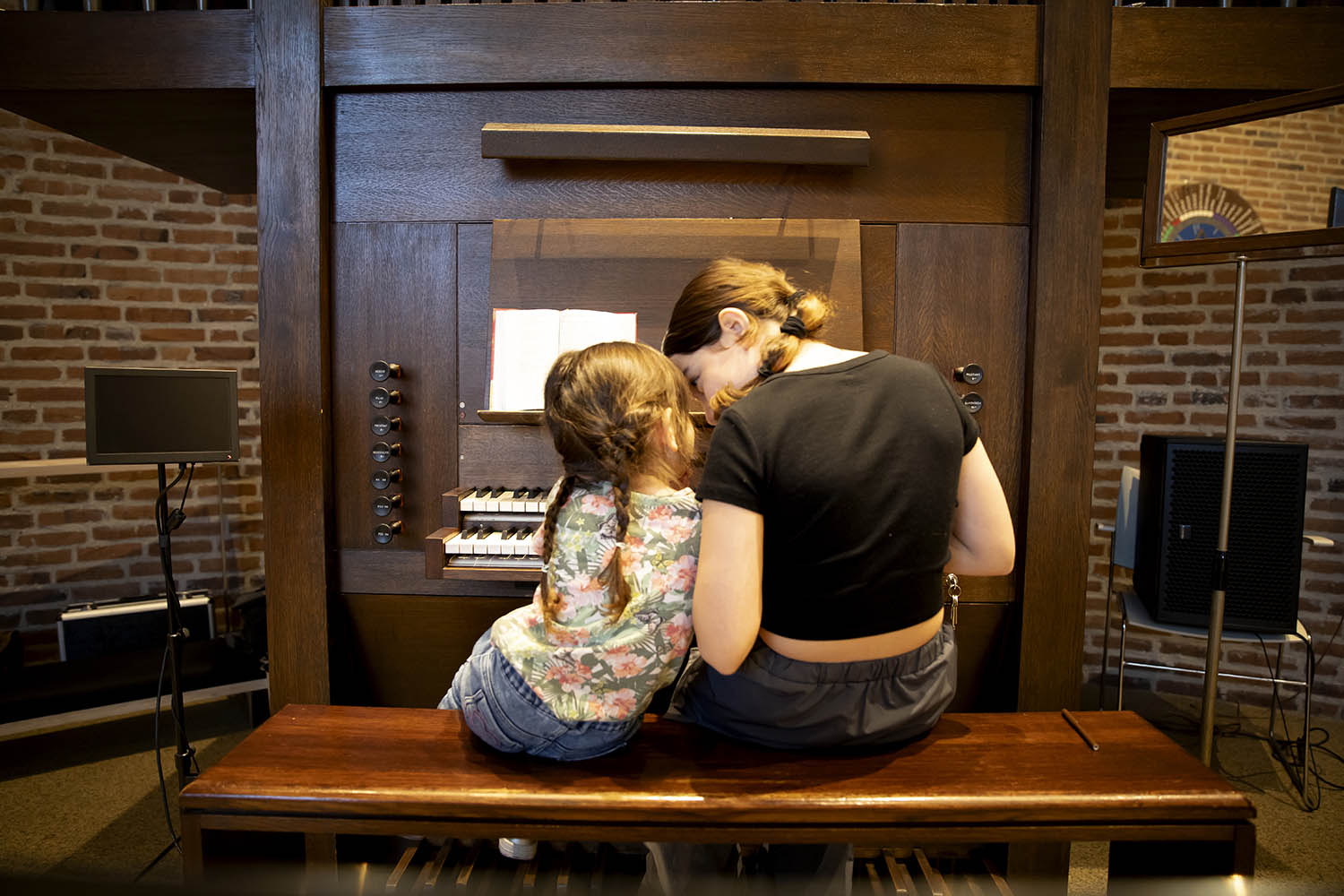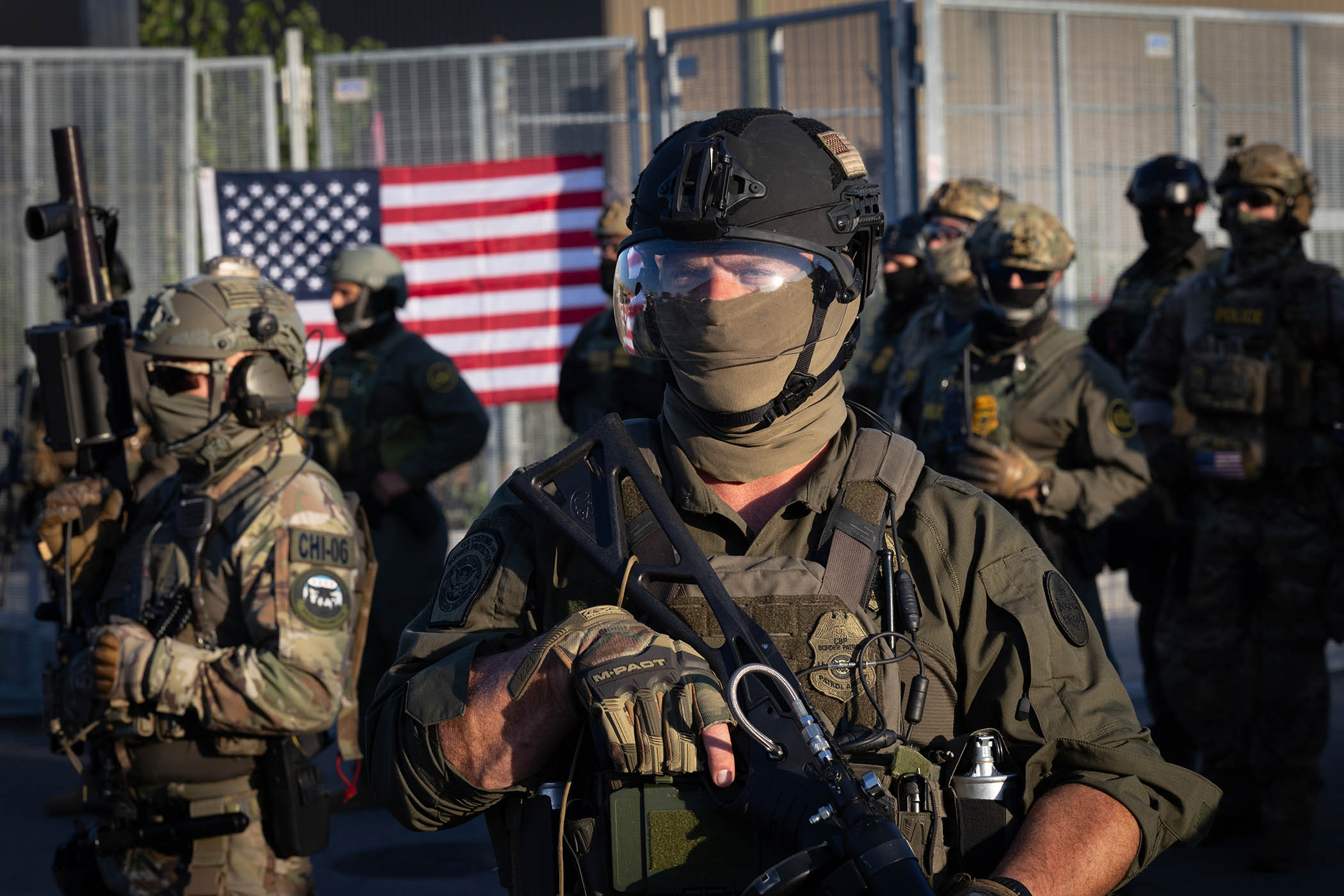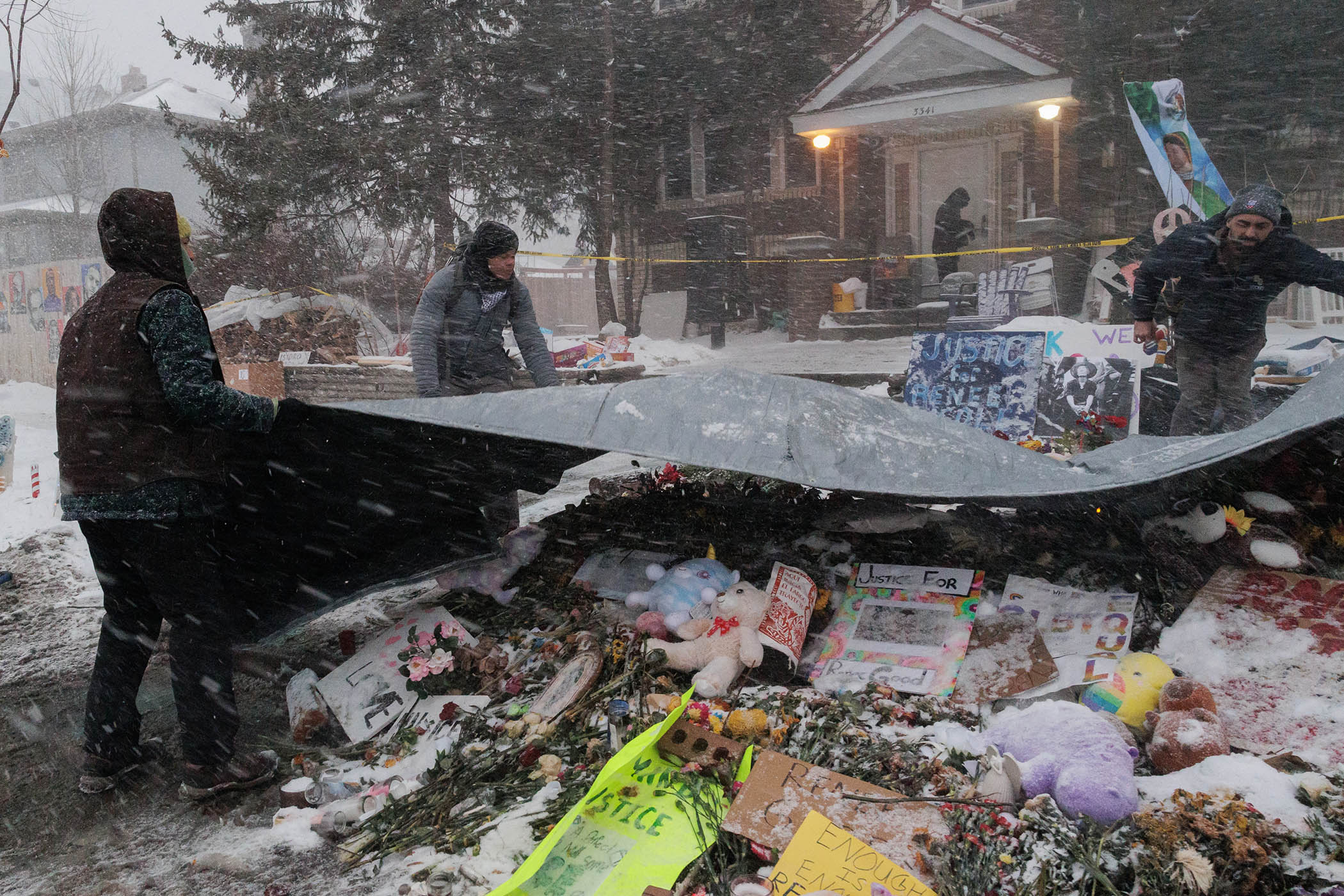Fourteen-year-old Ariana Babayants spoke quietly to the ring of a dozen people gathered in the Protestant Open Hof church in Kampen, a city 85km east of Amsterdam.
“One day, you wake up and there are police officers around your bed,” she said. “And they say: ‘Pack as many clothes as you can – you have to come with us.’ And then you’re taken away in these big black vans… You end up at the detention centre, with concrete walls all around you and cameras. I have to cry a little… It leaves a huge mark on your life.”
Ariana, a smiley teenager who loves dancing and K-pop, was not describing her experience in the country of her birth, Uzbekistan; rather it was the country she views as her home, the Netherlands. Along with her mother Karina, father Aleksandr and her three siblings, Ariana was due to be deported last autumn. Instead, the family fled to a church.
Under an ancient Dutch convention that prohibits the state from entering a church in service, the Open Hof has for the past 192 days been running a continuous service to protect the Babayants family. They have become a symbol of a wider battle between the popularity of the Dutch far-right, which is now the country’s largest party, and a more tolerant version of the Netherlands that is fighting back.
Protestant minister Kasper Jager did not hesitate when the call came from children’s rights campaign group ChildSupporto. “We don’t want to come across as activists,” he said, mildly. “You live out your faith. There is this bitter wind blowing – not just in the Netherlands but around the world – of populism, of finger-pointing at asylum seekers. But a small group shouts the loudest. What I notice here and among people with no connection to the church at all, who just blew in with the wind, is a softer breeze.”
Veteran anti-immigration politician Geert Wilders – who has a criminal record for insulting Dutch Moroccans – has the largest Dutch party in an unstable coalition that promised the “harshest asylum policy ever”. The Netherlands saw refugee numbers halve in early 2025, from 9,005 asylum requests in the first quarter of 2024 to 4,530 in the same period this year.
But Wilders’ attempts to go further have faced challenges, not least from European and Dutch law. A demand by his asylum minister, Marjolein Faber, to stop paying for bed and board for failed asylum seekers was overturned by a local court last week. This came a day after Wilders threatened to torpedo his own government if it does not adopt new anti-asylum measures, including ejecting Syrians and using the army for border control.
We bring in people, as we haven’t enough workers, yet send away those who speak the language
We bring in people, as we haven’t enough workers, yet send away those who speak the language
Don Ceder, Christian Union MP
Meanwhile, immigration has fallen from voters’ top concern a year ago to third place, after the housing market and healthcare. Support for Wilders has dropped too: one poll puts his Party for Freedom second to the GreenLeft/Labour alliance.
Related articles:
The Babayants’ case has attracted national attention but Faber has insisted she will not be “emotionally blackmailed”. She told The Observer in a statement: “Generally speaking, whoever has no right to asylum must go back – including families with children.”
Lynn Hillary, an assistant professor at the University of Amsterdam who specialises in asylum, said church asylum had no legal status, but faith-based organisations – traditionally a bedrock of Dutch politics – still have power. “It’s not asylum in the way we use the term now, but in the way we used the term before the Refugee Convention of 1951, offering sanctuary.” she said. “It is the church using its position within society to basically help people get some kind of protection from the government.”
Newsletters
Choose the newsletters you want to receive
View more
For information about how The Observer protects your data, read our Privacy Policy
Don Ceder, an MP for the centrist Christian Union, is gathering support to revive an old law that prevented children who had been in the Netherlands for more than five years from being deported.
“Children who are here longer than five years are fully integrated to a point that we think it’s not reasonable to send them to a country where many of them have never been,” he said.

The Babayants family, clockwise from top left, Aram (20), Aleksa (2), mother Karina, father Aleksandr, Ariana (13) and Amelia (10).
It also made no economic sense, he added: “We’re bringing in people to work because we don’t have enough workers. And qualified people or kids who are getting qualified, who speak the language, we are sending away.”
Human rights experts are concerned too. “It’s not really about migration law or asylum law – it’s about children’s rights and the idea that you cannot blame children for the faults of a government or their own parents,” said Wil Eikelboom, asylum lawyer at Prakken d’Oliveira and chairman of the Dutch association of asylum lawyers, VAJN.
Back in Kampen, some still remember the second world war and the persecution of their Jewish neighbours. “You need to let your heart speak, and not set people apart,” said church-goer Henny IJlst, 81. “Never again.”
On Friday, the marathon service was joined by a Muslim speaker and pastors from the Westerkerk, the church next to the annexe where Anne Frank took refuge from the Nazis, which has even written a “hymn of the church asylum”.
The Babayants say they left Uzbekistan for their safety, and now worry that their girls would not have equal rights there. Aleksandr said he was “tired – but staying positive”, repairing things for a local secondhand shop, while his son Aram, a qualified IT worker, runs their website and the children stay busy with schoolwork.
“We came here for safety,” said Karina, 42. Ariana adds: “But there needs to be a solution. You cannot deal with children like this – it is just inhumane.”
Long after the family retired to the wing where they are living, preacher Eelco van der Brug, from Rotterdam, got up from a couch, ready for the midnight to 6am shift. “Despite the stupidity and lack of mercy, it is beautiful what is happening here,” he said.
Photographs by Judith Jockel


